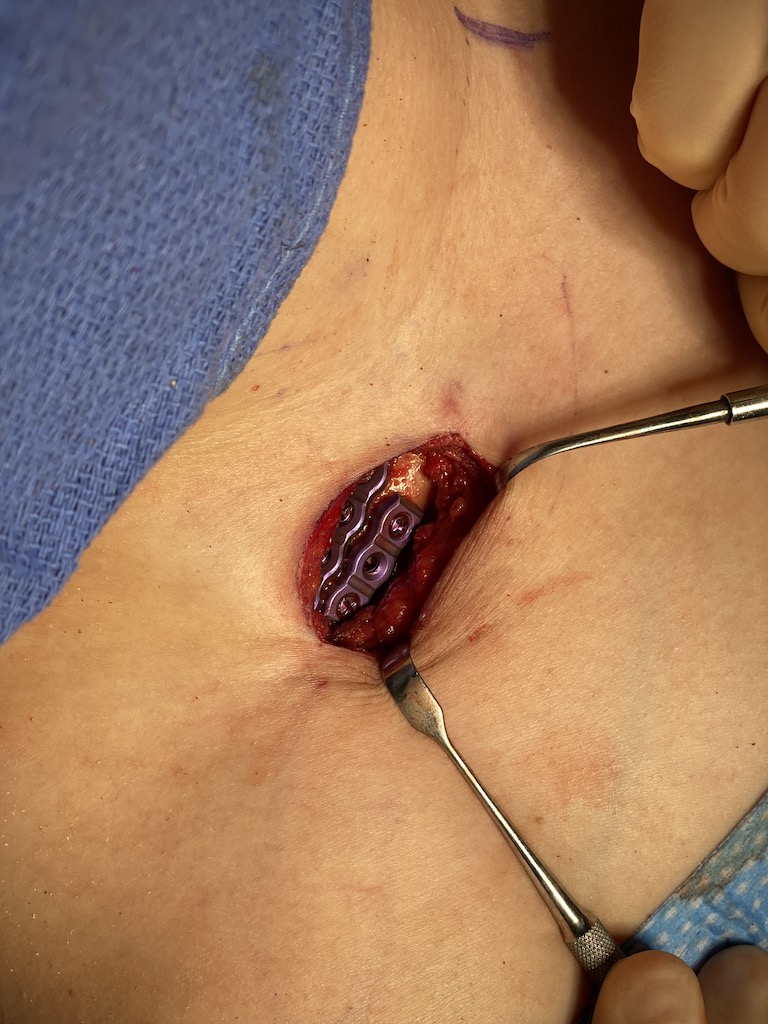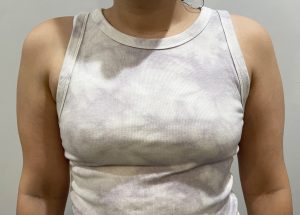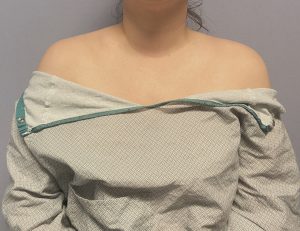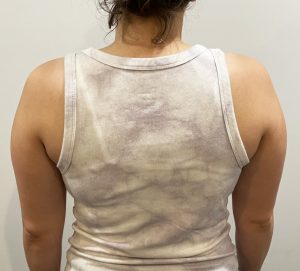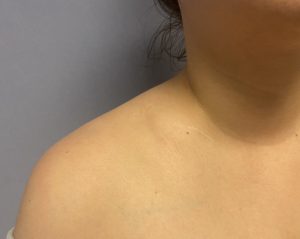Background: Shoulder dysphoria is a perception that the width of one’s shoulders is disproportionately wide compared to other body features and dimensions. It is particularly associated with the transfemale population where the width of the shoulders can be a particularly sensitive issue in how the body is seen. There are anthropometric measurements for shoulder width in which that perception can be confirmed. Generally when the bideltoid distance is greater than 45 mms it is regarded as being outside the norm for females. In the hundreds of transfemale patients that I have treated every single one of them has been north of 45cms bideltoid measurement with a few as high as 52 cms.
But shoulder dysphoria is not an exclusive entity to transfemales alone. Cis-females can have it also although its occurrence is far less. There are many cis-females with broad/wide shoulders in which it is not a concern at all. In cis-females that have shoulder dysphoria they often have a predicate history of being teased about their shoulders when they were young.Having been told that one has ‘linebacker’ shoulders is a classic example that I hear. There are also issues of the fitting of clothes where the width of the the shoulders causes fit issues below it…and clothes that fit at the waistline are too tight at the shoulder.
In shoulder reduction surgery there is no difference between trans or cis-females in how the procedure is performed. The goal is still maximal clavicle bone removal based on the length of the bone and the plate that is applied.
Case Study: This female had long been bothered by the width of her shoulders having been teased about it when she was young. Her bideltoid distance was 48cms. She has broad shoulders with thick soft tissues with no clavicle show.
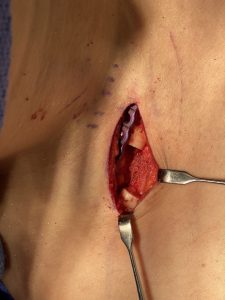
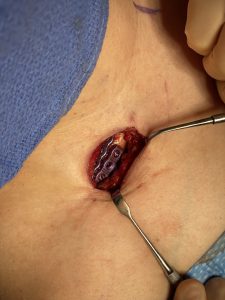
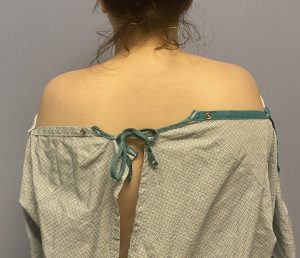
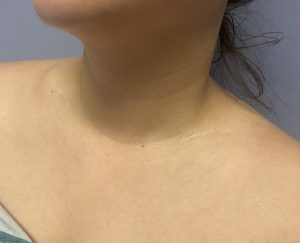
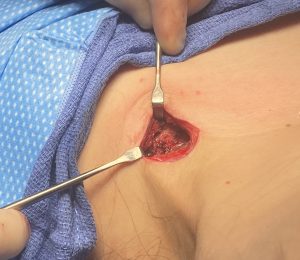
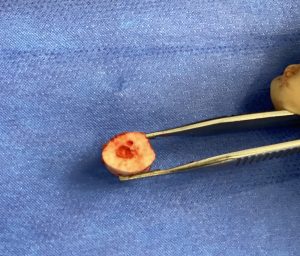
Key Points:
1) Shoulder dysphoria can also affect cis-females and not just transgender patients.
2) Lack of clavicle show indicates either a thick soft tissue cover or a thin clavicle bone.
3) Double plate fixation is indicated particularly in broader shoulders with thick soft tissues.
Dr. Barry Eppley
World-Renowned Plastic Surgeon

